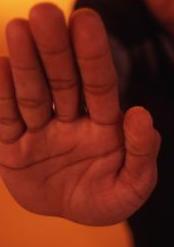Blocked
Deripaska court challenge over Hochtief
 Oleg Deripaska, the Russian billionaire, is taking legal action after being blocked from buying a majority shareholding in one’s of Europe’s largest infrastructure companies.
Oleg Deripaska, the Russian billionaire, is taking legal action after being blocked from buying a majority shareholding in one’s of Europe’s largest infrastructure companies.
Mr Deripaska, who has an estimated $16 billion (£7.9 billion) fortune, is understood to want to take control of Hochtief, the German construction company, to bring Western expertise to the rebuilding of his homeland.
The move has sparked concern in Germany, where officials reportedly are trying to link Mr Deripaska to the Russian mafia. Sources close to Mr Deripaska have said that these allegations are attempts to discredit one of Russia’s leading businessmen and derail his international acquisitions.
Mr Deripaska is close to President Putin and is believed to share the Russian leader’s view that the country should project power through its business interests.
The billionaire oligarch is understood to be part of Mr Putin’s entourage this week at the Asia Pacific Econonimc Cooperation summit in Australia.
He already owns 9.6 per cent of Hochtief, which is building the Hearst Tower in New York, through a Cyprus-based company called Rasperia.
He had hoped to buy a further 25 per cent of Hochtief, which employs more than 45,000 people worldwide, through a holding company called Custodia. However, this year Custodia sold the stake to ACS, a Spanish construction firm. Mr Deripaska has filed a lawsuit against Custodia claiming that he had preemptive rights on any sale of the stake.
Spokesmen for Mr Deripaska and Hochtief were not available for comment yesterday.
Hochtief, which is based in Essen, is the largest infrastructure construction company in Germany, the United States and Australia. It is building commercial properties worldwide, including Taipai 101 in Taiwan, the world’s tallest skyscraper. It runs airports, including facilities in Athens, Sydney and Düsseldorf, and builds rail lines, ports and mines. It had revenues last year of €15.5 billion (£10.4 billion).
Hochtief, which was founded in 1870, built the Berlin bunker where Adolf Hitler committed suicide at the end of the Second World War and also Hitler’s Berghof retreat and Wolf’s Lair headquarters. It moved the Abu Simbel monument in Egypt to save it from the floodwaters caused by building the Aswan Dam.
Mr Deripaska is thought to want to bring Hochtief’s expertise in large infrastructure to Russia to take advantage of the country’s development. The move is likely to have been sanctioned by the Kremlin, which is encouraging national businesses to learn from the West and deploy that expertise to the benefit of Russia.
— Hochtief agreed yesterday to buy the property arm of Deutsche Bahn, the rail operator, for €1.6 billion. The acquisition is a joint venture between Hochtief and Redwood Grove International, a property fund.
(Published by Times Online, September 6, 2007)
______________________